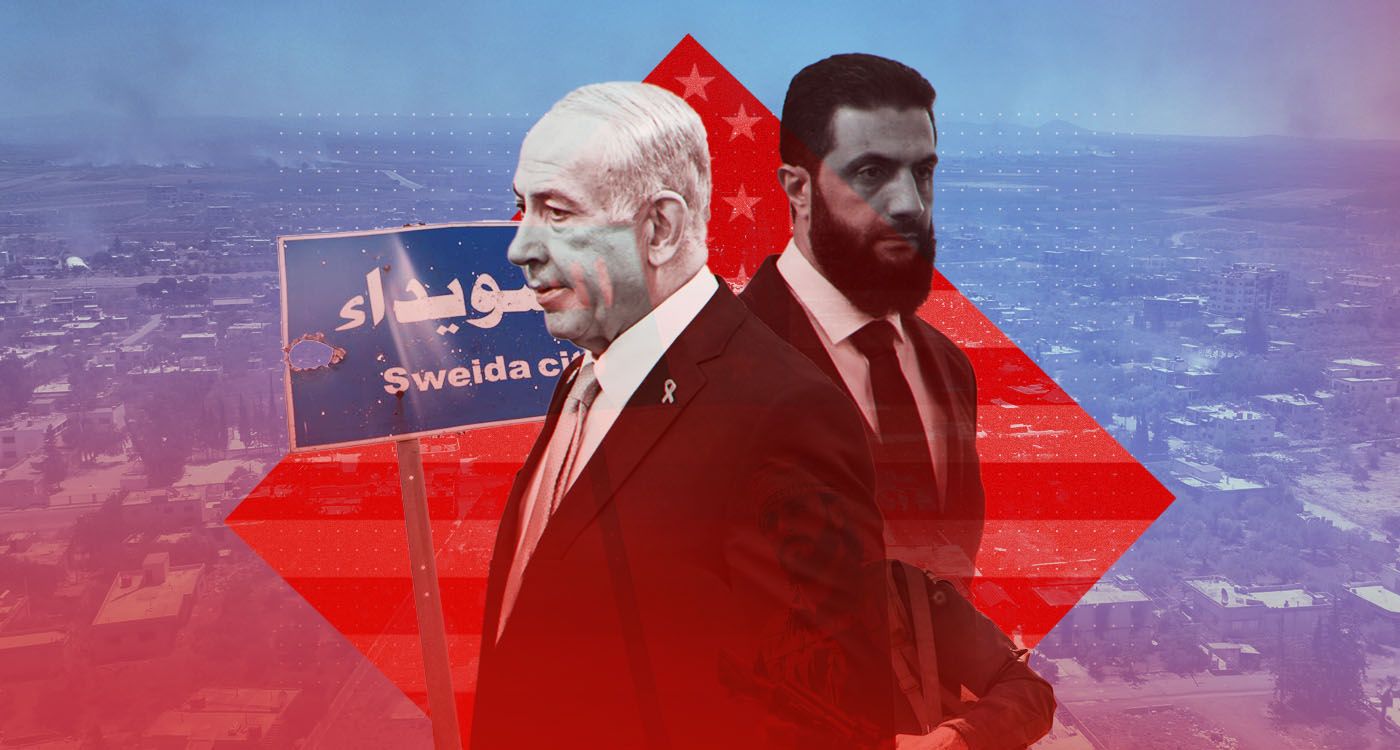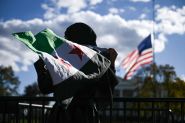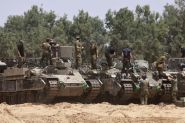- Home
- Middle East
- Confusion in Syria

©This is Beirut
Recent developments in Syria are causing surprise and confusion. In a bold move, President Trump and his administration acquiesced to requests from the Turkish and Saudi leadership and lifted most sanctions on the Ahmed al-Sharaa regime, his Salafist HTS movement, and Syria itself. It did so without conditionality, without much effort to understand the character, intentions, and capabilities of the new power in Damascus, and without a plan to use this windfall as leverage. A conventional American approach would have involved months of negotiations over conditions-based, step-by-step sanctions relief in which carrots would be doled out for good behavior or withheld for bad. Of course, getting a consensus in Washington behind such an approach, let alone negotiating it with the new Syrian regime, would have taken time, perhaps losing the moment. With a strong preference for bold moves and deals, the Trump team's attitude may have been to accede to the requests of the leaders of Turkey and Saudi Arabia, leaving it to them to sort out the details, so long as American corporate interests were not neglected as contracts got signed.
This boldness and unconventionality may be welcome, but alone can be no substitute for statecraft, diplomacy, and presence. Last week's events in southern Syria should serve as a wake up call; superficial deals and gestures are not the same thing as actual problem-solving. Among the problems: outside the belt of Sunni cities running from Idlib to Damascus, Sharaa's authority is not established, the state is not fully in control, and Sharaa's Salafi/Jihadi base is both frightening and unacceptable to minority groups. Until this past week, American policy seemed to be to sail above all of that and talk up the Abraham Accords as the answer.
Yet, American policy overlooked Israel, where Sharaa is not seen as a potential partner but as a potential threat. Moreover, Israeli leaders see little evidence of American realism on this point or about security and stability in Syria. Turkish ambitions in Syria are not reassuring to Jerusalem. And more immediately, Israel's post-October 7 national security strategy is highly proactive and preemptive. This approach is premised on the idea that if neighboring states do not exercise control within their borders to tame security threats to Israel, then the Israel Defense Forces will act with carte blanche. If Israeli allies such as Hikmat al-Hijri, the Druze figure in southern Syria, can be found, they may think all the better. If not, Israel's dominance of the air provides sufficient means, according to this logic. From this perspective, American efforts to cobble together ceasefires promise little but fleeting calm. As for economic development of Syria and foreign investment, the incentive of removing sanctions will not outweigh the disincentive of chaos and the absence of a credible avenue away from it.
It is not too late for a serious American policy that addresses some underlying problems in Syria. A starting point is analytical: our allies involved in Syria are working at cross purposes. Israel is the most obvious example. Its leaders make clear they will preserve their freedom of action and do not believe in any long-term solution based on the likes of Ahmed al-Sharaa. Less obvious is the competition between Ankara and Riyadh that will manifest itself over time. Crown Prince Muhammad bin Salman was motivated to convince President Trump to lift sanctions because aid and investment are his main foreign policy tools; sanctions held him back from greater involvement in Syria to prevent Turkish domination there. Sharaa—aware of his own weakness—welcomes Saudi interest as a balance against Turkey. Does Washington understand that Syria is becoming a cockpit for a contest between two key allies, Turkey and Saudi Arabia, not a landscape for cooperation? And has Washington fully absorbed the interplay of events in Syria and Lebanon? Lebanese see Salafi fighters in Syria on their doorstep; Syrian authorities see Hezbollah explosives moving from Lebanon into the hands of their opponents. If these security disconnects between Lebanese and Syrians are not addressed now, they will risk making obsolete the American goal of disarming Hezbollah and enabling the Lebanese army and state to take over.
American statecraft can be effective if it is activated on a persistent basis. That objective would be served by standing up an official American presence on the ground in Damascus, so Washington can evaluate and influence developments there. It would require intense work in de-conflicting behavior and actions by U.S. allies that are now at cross-purposes. And it would entail pressure on Sharaa to break—and be seen to break—from his Salafi roots and the armed gangs that brought him to power. For better or worse, Syria has now become the cockpit for all the rivalries and changes in the Middle East. Getting it right does not mean another "forever war" waged by America on behalf of the dream of state-building. But it will require a more serious level of analysis and engagement in resolving conflicts—their sources, not just their manifestations.
Read more




Comments